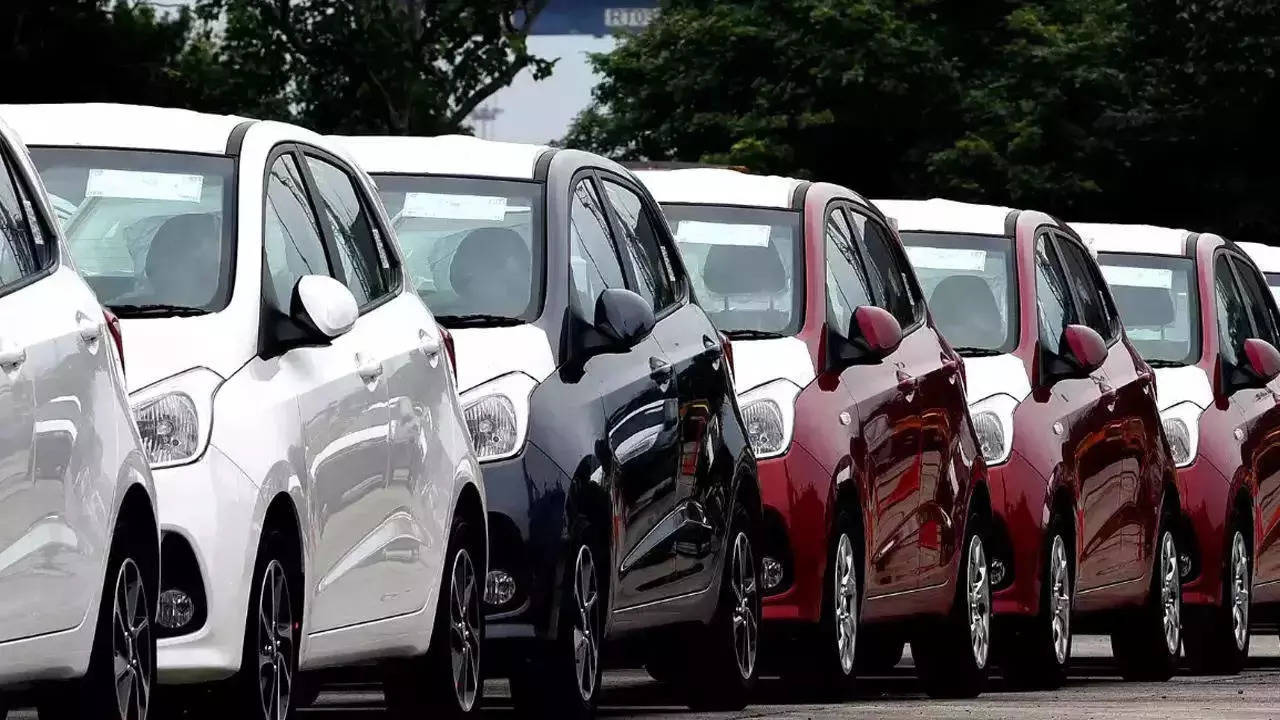
Passenger vehicle (PV) makers are estimated to have taken a sharp correction in dispatches to dealers in December, indicating that sales in Asia’s third largest auto market are beginning to lose steam. Easing of demand post festivals that had pushed up inventory coupled with last year’s high base impact nudged automakers to cut dispatches.
December sales are expected to be in the range of 275,000-280,000 units as per industry estimates.
This would be the first time in 2023 when industry volume is slated to drop below 300,000 units on a monthly basis. In the first eleven months of 2023, the average monthly volume has been 345,000 units. On a month-on-month (compared to November 2023) basis December volumes are estimated to contract by 55,000 units – the highest absolute decline in the last two decades, barring December 2021.
While the last month of the year is always the weakest compared to the remaining 11 months as buyers wait for the new year to get the benefits of the model change, this December is expected to be an outlier.
“The stock in the beginning of December for the industry was around 330,000. This is, in a normal month, not a high level. But in December when all carmakers and channel partners want stock levels to be minimum, this stock is quite high. We can expect wholesales in the industry in December to be muted and focus will be on retails. Last year retails were about 410,000 units and this figure could be breached this year in December.
Expectedly, the stock levels in end-December should come down to around 150,000 units,” said Shashank Srivastava, senior executive officer, sales and marketing at Maruti Suzuki India.
Manish Raj Singhania, president at the dealer body, Federation of Automobile Dealers Association, said that even as the retails are strong, the stock at car dealerships pan India have reached an alarming level.
“The stock levels are high and there are close to 700,000 PVs in the system which is equivalent to more than 60 days of sales. The wholesales (dispatches) for the next two to three months need to come down to 245,000 units and only then the stock will get corrected and come down to 40-45 days,” he said. FADA has written to auto industry body, Society of Indian Automobile Manufacturers Association requesting them to not overburden the dealers with excessive stock. It has also written to financiers to “take cognizance of the stock levels and not overfund,” he said. According to him, despite the heavy discounts, stock reduction will not be over 70,000-80,000 units.
Tarun Garg, chief operating officer at Hyundai Motor India estimates December sales to be 287,000 units, 3-4% over last year. Hyundai will do better with 42,500 units, up 10% YoY. For the full calendar year, he expects sales to be 4.1 million units, up around 8.1% YoY. Commenting on Hyundai’s stock, he said. “In November-end it was three weeks which is likely to reduce further to 2 weeks at the end of December. So, we are entering 2024 with a healthy state of network stock,” said Garg. He expects the calendar year to be a record one for both industry and Hyundai.
The three-month rolling PV sales during the festive season rose to close to 1.1 million in November as automakers ramped up production to capitalise on festival demand. Over the last decade, the contribution of December volumes in the total annual (calendar year) sales has hovered at an average 8%.
This December, volume contribution may drop to 6.8% – the lowest reading since December 2008. However, in absolute terms December monthly volume is expected to be one of highest ever as industry base is swelling.

















